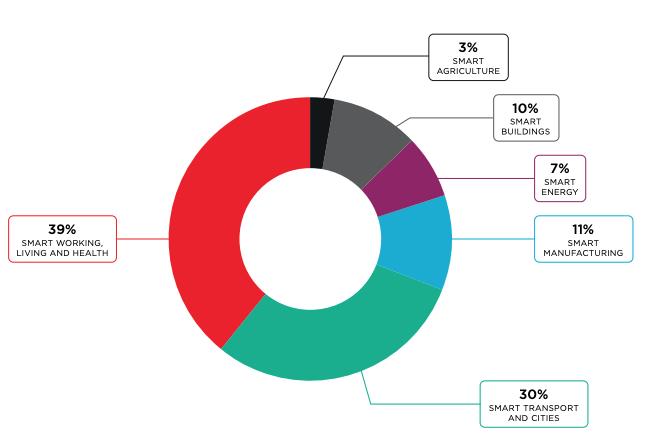The study’s resulted indicated an even split between the enablement effect of M2M/IoT technologies, and those enabled through behaviour changes from the personal use of smartphones. The majority of avoided emissions from the use of M2M were primarily in buildings, transport, manufacturing and the energy sector. Personal smartphone usage is enabling emissions reductions by encouraging lifestyle changes such as reduced travel, increased use of public transport, remote home heating control and online shopping.
Many of the largest mobile operator groups will start disclosing their climate impacts as part of a GSMA-led initiative to develop a mobile industry climate action roadmap in line with the Paris Agreement and the GSMA states that these disclosures will form the first phase of an industry-wide, climate action roadmap.
Enabled avoided carbon emissions by category in 2018
“The mobile ecosystem enabled savings of enough electricity and gas last year to power more than 70 million houses for an entire year in the US. Additionally, fuel for all 32.5 million registered cars in the UK to drive for 19 years was saved,” said Mats Granryd, the GSMA’s director general. “Today’s study underlines how mobile and smart technologies are powering sustainable economic growth while enabling the avoidance of emissions across multiple industry sectors. These technologies will be crucial to the world reaching its Net Zero targets.”
“Climate change requires a collective effort across governments, businesses and civil society if we are going to succeed in limiting global temperature increases to within 1.5 degrees,” said Tom Delay, CEO of the Carbon Trust. “This analysis shows the positive role that mobile technology is playing in the evolution of other sectors and is a great example of what is possible.”



